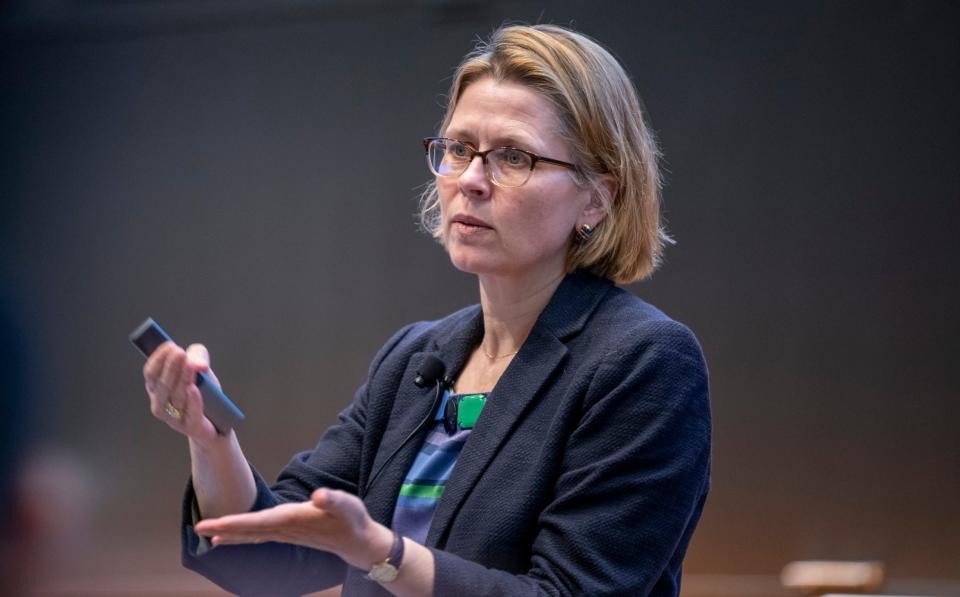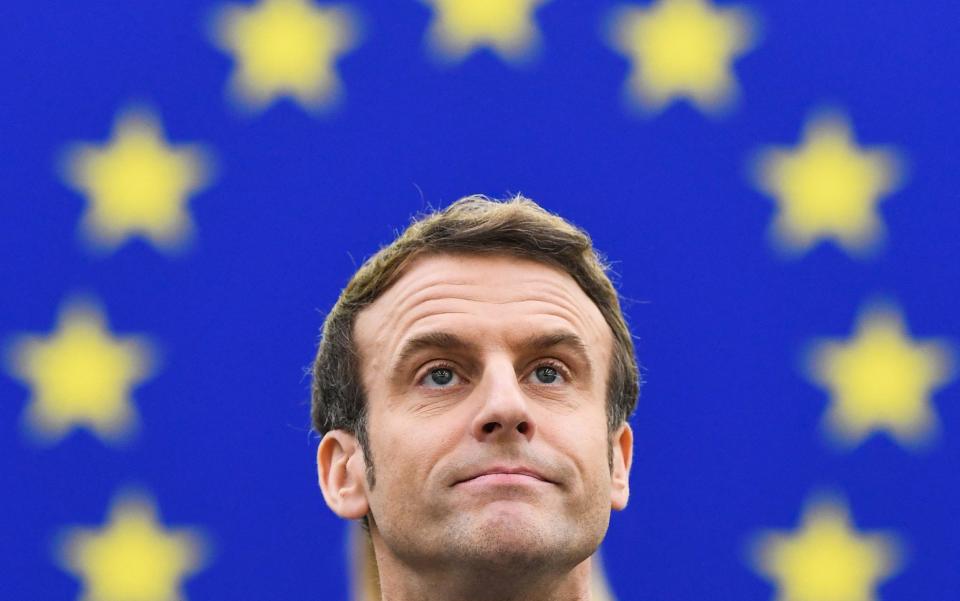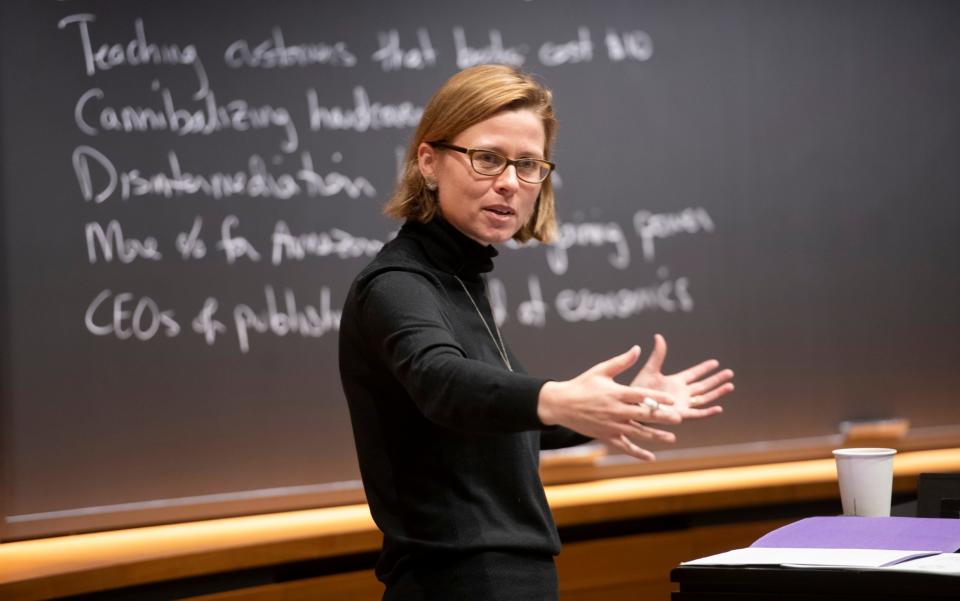 TON Society announced a proof-of-personhood program targeting Telegram users, who can voluntarily scan their palms in exchange for benefits. The organization allocated 1 million TON for this initiative, distributed among 500 million participants in the next 5 years after completing their palm verification using Humancode’s artificial intelligence (AI) biometric tech. TON Society Announces Digital Identification […]
TON Society announced a proof-of-personhood program targeting Telegram users, who can voluntarily scan their palms in exchange for benefits. The organization allocated 1 million TON for this initiative, distributed among 500 million participants in the next 5 years after completing their palm verification using Humancode’s artificial intelligence (AI) biometric tech. TON Society Announces Digital Identification […]
Source link
society
American Cancer Society leverages Gitcoin for decentralized open-source cancer research funding

In a move that blends innovation with philanthropy, the American Cancer Society (ACS) has embraced web3 technology by partnering with Gitcoin, a leading figure in open-source funding, according to a statement shared with CryptoSlate.
This strategic collaboration signifies a milestone for the ACS as it steps into the decentralized world of web3, leveraging Gitcoin’s expertise to drive its ACS Cares program and the Crisis Response Fund.
The ACS round, distinct and independent from the regular seasonal Gitcoin Grants program, is designed to benefit the ACS Cares program and the Crisis Response Fund directly. This initiative is crucial, as donations will be channeled towards groundbreaking cancer research, advancing health equity initiatives, and bolstering patient support programs.
Additionally, it will aid in providing essential lodging for cancer patients undergoing treatment. This venture represents a crucial intersection of technology and philanthropy, where blockchain’s potential is harnessed for impactful healthcare outcomes.
The initiative represents a continued interest in decentralized open-source funding by a renowned non-profit organization utilizing Gitcoin technology. The first instance was a significant QF collaboration pilot with UNICEF in 2022.
Gitcoin and decentralized funding.
The significance of Gitcoin in the realm of open-source funding cannot be overstated. Since its inception, Gitcoin has played a pivotal role in the web3 ecosystem, mainly through its utilization of Quadratic Funding (QF). This innovative funding mechanism has enabled Gitcoin to disperse over $50 million across more than 100 rounds, empowering organizations like UNICEF and now the ACS in their mission-driven endeavors.
QF is central to Gitcoin’s strategy, a crowdfunding approach that values the number of contributors over the total donation amount. This method fosters widespread community involvement and ensures equitable allocation of funds to projects that resonate most with the public. In the case of the ACS round, this methodology promises to channel resources efficiently towards breakthrough cancer research, health equity initiatives, and patient support programs, all pivotal in the fight against cancer.
Azeem Khan, Head of Impact at Gitcoin, commented,
“By using Gitcoin, the American Cancer Society gains access to a vibrant community of technologists and crypto enthusiasts who are passionate about driving positive change.
This partnership combines Gitcoin’s expertise in blockchain with the American Cancer Society’s commitment to cancer research and prevention, creating a powerful synergistic effect in the fight against cancer.”
Azeem Khan added, “Participating in the ACS round powered by Grants Stack is a unique opportunity for individuals and organizations to contribute to the fight against cancer with blockchain technology.”
Kyle Weiss, Executive Director at the Gitcoin Foundation, and Nicole d’Avis, Protocol Lead at the Public Goods Network (PGN), have both expressed enthusiasm for these collaborative efforts. The PGN, an innovative project in the Gitcoin ecosystem, operates as a low-cost Layer 2 OP Chain, directing most of its net sequencer fees towards public goods. This initiative presents a cost-effective alternative to the Ethereum mainnet for users and developers, simultaneously generating funds for public goods through transactions.
While open-source funding may not have captured mainstream media attention, entities like Gitcoin and PGN have quietly revolutionized how public goods are supported. Their efforts are instrumental in creating sustainable and reliable funding sources for initiatives that serve the greater good.
The American Cancer Society’s venture into web3 with Gitcoin is more than a fundraising initiative; it is a beacon of innovation in the philanthropic world. By adopting blockchain technology and leveraging the power of community-driven funding, the ACS is furthering its mission to combat cancer and setting a precedent for other non-profits to explore the transformative potential of web3.
‘It’s sad that French society is too insecure to let an American work for the EU’

Friday was supposed to be Fiona Scott-Morton’s first day in Brussels. Her appointment as chief competition economist at the European Commission was announced last month with little fanfare on page six of its daily news bulletin.
A 227-word item stated she would start on September 1 and detailed the Yale Professor’s career achievements, including a stint working in the Obama administration.
Yet what was meant to be a routine appointment quickly spiralled into a diplomatic furore.
France’s Europe minister Catherine Colonna said she was “astonished” by the hiring decision, while President Emmanuel Macron branded it “dubious”.
Their problem? Not Scott-Morton’s politics or policies, but her passport: she is American.
“Isn’t there a European researcher who can do this job?” Macron demanded.

Those who opposed Scott-Morton’s appointment effectively argued that citizenship was more important than credentials when it came to working for the Brussels machine.
Facing a wall of pressure, Scott-Morton turned down the job.
Weeks later, the 56-year-old academic is still trying to digest what happened.
“These are supposed to be steady, planned ahead, known positions that you do for a couple of years. I wasn’t expecting to be hired and fired on a dime. It’s not the way my world works.”
Scott-Morton says she had little choice but to turn down the job, which involved supporting EU competition chief Margrethe Vestager with economic analysis.
“The chief competition economist has to be legitimate and have the support of the community that forms the EU,” Scott-Morton tells the Telegraph in her first interview since declining the role.
“If the French and French President are so concerned about an American taking that post, then I think it would be difficult to do the job well because it would become about political and bureaucratic wrangling instead of substance.
“I didn’t want to be in a position where some substantial fraction of the power-base in Europe wanted me to leave. That’s not a pleasant job.”
The experience, one of the most tumultuous periods of her professional life, has left a bitter taste in the mouth.
“It’s troubling and sad that French society is insecure to the point of rejecting the idea that there could be a principled American who wants to work for Europe,” she says. “Why should a great job in a lovely city cause a big search for an ulterior motive?”

Speaking on holiday from Edinburgh, Scott-Morton says: “I am disappointed because I was looking forward to it.
“I had taken some pains to rearrange my life, my family’s life, my housing, my teaching, university, my students, my research projects. All were reorganised so that I could accommodate the need to work for the government.
“We plan our classes a year in advance,” says Scott-Morton, who has been on the faculty at Yale since 1999. “I have to tell my university if I’m going to Brussels so they can find someone else to teach my classes in September.”
Scott-Morton was well qualified for the job, having served in a role at the US Department for Justice for the Obama administration where she was deputy assistant attorney general for economic analysis.
During her time, the agency blocked deals including the AT&T and T-Mobile telecoms tie-up and launched a probe into Apple’s e-books over price-fixing.
More than three dozen economists, including Nobel prize winner Jean Tirole and former International Monetary Fund chief economist Olivier Blanchard, leapt to Scott-Morton defence when the French objected to her appointment.
“Scott-Morton is one of the best economists in the world in the domain of industrial organisation, a major contributor to policy thinking on tech regulation, and strongly motivated for public service,” they wrote in an open letter.
The incident has now left a gaping analytical hole in the EU during a crucial six months for competition law. The bloc’s flagship digital markets act comes into full force next Spring and will give Brussels more teeth to police Big Tech.
Seven companies have been designated so-called “gatekeepers” under the new rules, including the parent companies of Google, Amazon, Apple, Facebook and Microsoft. All have a market cap of more than €75bn (£64bn) and at least 45m monthly users.
Critics have highlighted that Scott-Morton has performed consulting work for three of these seven giants. She points out that most of that work is in the past and consulting is common in the sector.
The former holder of the EU chief competition economist job and the current acting chief have both worked with the same global consulting firm as Scott-Morton.
The French have form when it comes to hostility towards the US.
When rumours swirled that Pepsi wanted to buy dairy giant Danone in 2005, then French finance minister Thierry Breton declared that “France is not the wild west” as politicians scrambled to defend the company.
The US soft drinks maker was branded an “American Ogre” by the country’s press, even though no official bid was made. The French were mocked for their “strategic yoghurt” policy, which quickly became bywords for French protectionism.
Thierry Breton, a Macron ally, is now the EU’s internal markets chief who reportedly has ambitions for the top job in Brussels.
He is part of a faction who have been alarmed by Danish competition chief Vestager’s willingness to block a merger between the rail divisions of Siemens and Alstom, two large European companies. Supporters of the deal want to build national champions and are in favour of more state aid and subsidies.
Scott-Morton steers away from commenting on the politics or the individual players in Brussels, saying only: “The agenda of making competition work would have been advanced if I had been in that job.”
One deal Brussels has approved is the proposed acquisition of Call of Duty-maker Activision Blizzard by Microsoft. The Commission accepted the latter’s concessions on cloud gaming, even as British authorities blocked the deal on the same grounds.
The decision put the UK in a tricky position as the only major country still standing in the way of the deal after US courts overruled attempts by the Federal Trade Commission (FTC) to block it.
Microsoft is now trying again with a new offer that piles pressure on Britain’s Competition and Markets Authority (CMA) to give it the green light.
Asked about the merger, Scott-Morton is quick to point out that she recently consulted for Microsoft on this deal.
But she adds: “The CMA is very exposed. The deal has gone through in many jurisdictions around the world. So now the CMA is in the position of trying to block a global merger, all by themselves and that’s not comfortable.
“My experience is that in these kinds of situations everybody cares a lot about saving face. Nobody wants to admit they were wrong and so there has to be a way out of the situation that preserves everybody’s legal process and their self esteem.”
Going forward, Scott-Morton fears that tech companies are moving too fast for traditional authorities to keep up.
“I think we need a specialist regulator,” she says. “We have them for agriculture, for telecoms and most of the things we invent.”
A fine idea – but perhaps one that will not see the light of day in Brussels after Scott-Morton was forced out.



